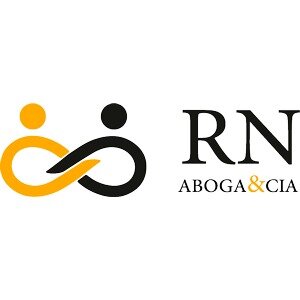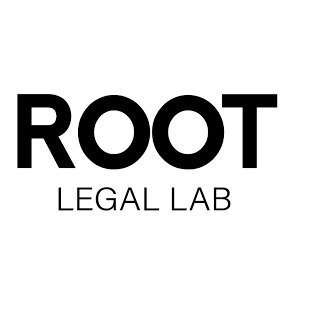Best Nonprofit & Charitable Organizations Lawyers in Seville
Share your needs with us, get contacted by law firms.
Free. Takes 2 min.
List of the best lawyers in Seville, Spain
About Nonprofit & Charitable Organizations Law in Seville, Spain
Nonprofit and charitable organizations in Seville, Spain, play a crucial role in the community, serving a variety of social, cultural, educational, and humanitarian purposes. These entities are characterized by their dedication to public benefit rather than profit-making. In Seville, as in the rest of Spain, nonprofits are governed by specific legal frameworks that outline their formation, operation, and regulation. These regulations are designed to ensure transparency, accountability, and the lawful allocation of resources towards the intended cause.
Why You May Need a Lawyer
Engaging with nonprofit and charitable organizations can involve various legal complexities, prompting individuals or entities to seek legal advice in several situations:
- Formation and Registration: When establishing a new nonprofit organization, legal assistance ensures compliance with formation requirements and registration procedures.
- Governance and Compliance: Nonprofits must adhere to regulations concerning governance, financial reporting, and operational activities.
- Issues with Taxation: Navigating tax exemptions and obligations requires specialized legal knowledge.
- Conflict Resolution: Disputes within organizations or with third parties may necessitate legal intervention.
- Contractual Agreements: Legal help may be needed to draft or review contracts and agreements with donors, partners, or service providers.
Local Laws Overview
Nonprofit organizations in Seville must adhere to both Spanish national laws and regional regulations. Key aspects include:
- Legal Framework: The primary legal framework is set by the Spanish Law on Foundations and Associations, which stipulates rules for formation, governance, and financial accountability.
- Registration: Organizations must register with the appropriate regional authorities before commencing operations.
- Taxes and Exemptions: Nonprofits may qualify for certain tax exemptions, but they must comply with tax reporting obligations.
- Financial Transparency: Nonprofits are required to maintain accurate financial records and provide periodic reports to ensure accountability and public trust.
- Employment Laws: Nonprofits must adhere to Spanish labor laws concerning employee rights and employment practices.
Frequently Asked Questions
What is the difference between a foundation and an association in Spain?
In Spain, a foundation is typically an organization with significant initial capital aimed at achieving specific purposes, while an association is formed by a group of people coming together for a common non-profit purpose. Both require different formation and governance structures.
How can I establish a nonprofit organization in Seville?
You need to draft statutes, hold a founding meeting, and register the organization with the regional government. Legal advice is recommended to ensure compliance with all necessary legal requirements.
Are there tax benefits for nonprofit organizations in Seville?
Yes, nonprofits may be eligible for tax exemptions on certain activities and VAT reductions, but they must comply with specific criteria and reporting requirements.
What ongoing responsibilities do nonprofit organizations have?
Organizations must regularly update registration details, maintain financial records, submit annual reports, and ensure compliance with labor laws and other operational regulations.
How are nonprofit organizations funded?
Funding can come from donations, grants, sponsorships, membership dues, and occasionally government funding, depending on the organization's mission and scope.
Can a nonprofit organization engage in commercial activity?
Yes, but any profit generated must be reinvested into the organization’s mission. Legal guidelines dictate the extent and nature of commercial activities permissible.
What should I do if there is a dispute within a nonprofit organization?
Attempt to resolve it internally through discussions and referencing the organization's bylaws. If necessary, seek mediation or legal guidance to address the dispute formally.
Are board members of nonprofits personally liable for the organization's obligations?
Generally, board members are not personally liable if they act in good faith and within their scope of duties, although exceptions exist if there is proven negligence or misconduct.
What constitutes a charitable activity under Spanish law?
Charitable activities are those that aim to further a public benefit, such as relief from poverty, education, social welfare, or cultural promotion. These activities must align with the nonprofit’s stated mission.
Do I need a lawyer to dissolve a nonprofit organization?
While not mandatory, legal assistance is advisable to ensure compliance with the legal requirements for dissolution and the proper distribution of any remaining assets.
Additional Resources
- Andalusian Regional Government: Provides guidelines and resources for nonprofit registration and regulation.
- Spanish Tax Agency (Agencia Tributaria): Offers information on tax obligations and benefits for non-profits.
- Nonprofit and Volunteering Support Centers: Local centers that provide support and advice for nonprofit organizations.
- Legal Aid Clinics: Some provide pro bono legal advice to nonprofit entities.
Next Steps
If you need legal assistance concerning nonprofit and charitable organizations in Seville, start by consulting with a lawyer specializing in this field. You can contact the regional bar association for recommendations. Additionally, consider reaching out to local nonprofit support centers for guidance on specific issues related to your organization's legal needs.
Lawzana helps you find the best lawyers and law firms in Seville through a curated and pre-screened list of qualified legal professionals. Our platform offers rankings and detailed profiles of attorneys and law firms, allowing you to compare based on practice areas, including Nonprofit & Charitable Organizations, experience, and client feedback.
Each profile includes a description of the firm's areas of practice, client reviews, team members and partners, year of establishment, spoken languages, office locations, contact information, social media presence, and any published articles or resources. Most firms on our platform speak English and are experienced in both local and international legal matters.
Get a quote from top-rated law firms in Seville, Spain — quickly, securely, and without unnecessary hassle.
Disclaimer:
The information provided on this page is for general informational purposes only and does not constitute legal advice. While we strive to ensure the accuracy and relevance of the content, legal information may change over time, and interpretations of the law can vary. You should always consult with a qualified legal professional for advice specific to your situation.
We disclaim all liability for actions taken or not taken based on the content of this page. If you believe any information is incorrect or outdated, please contact us, and we will review and update it where appropriate.

















